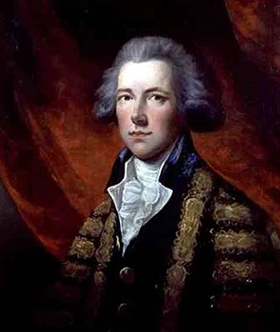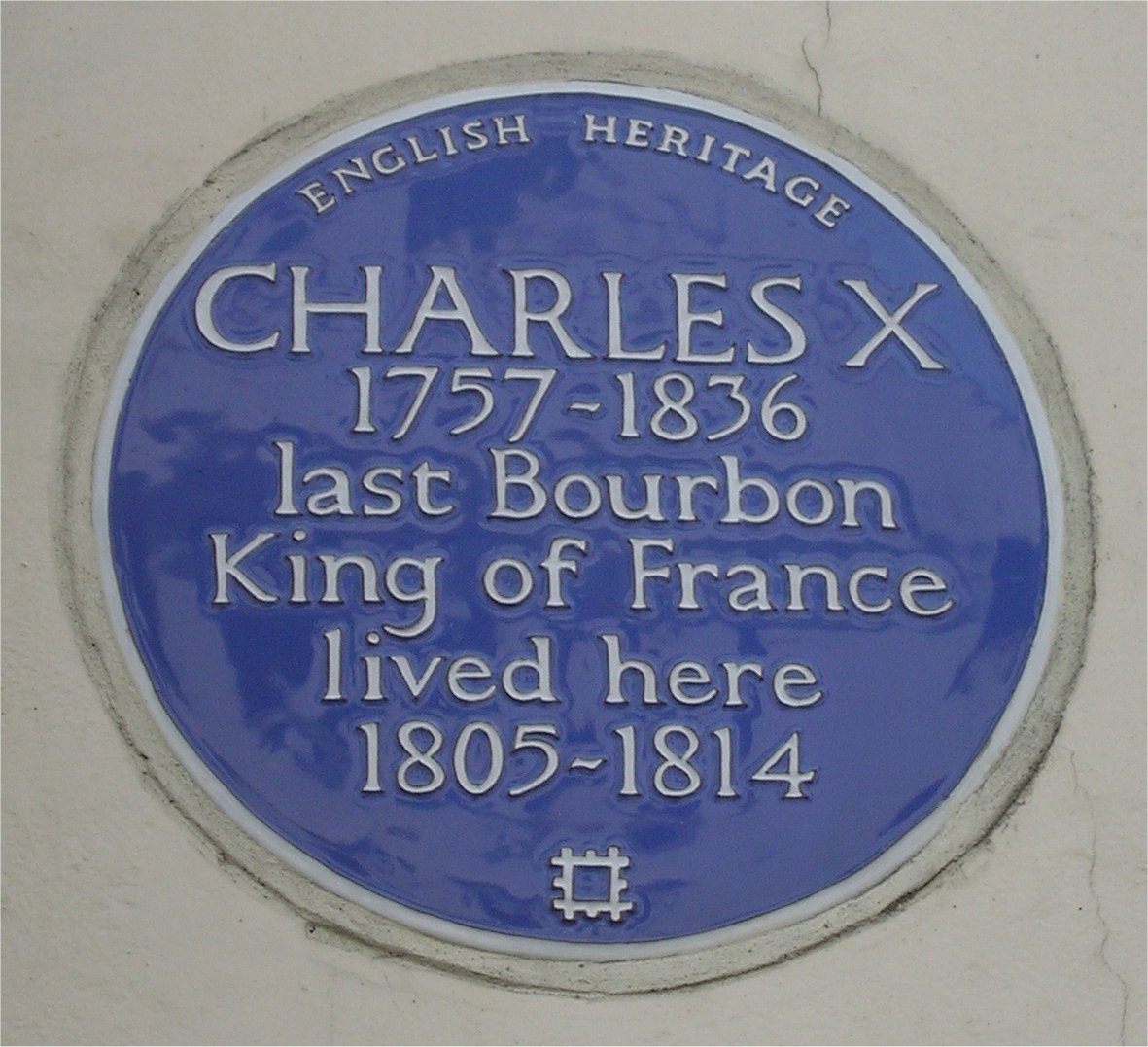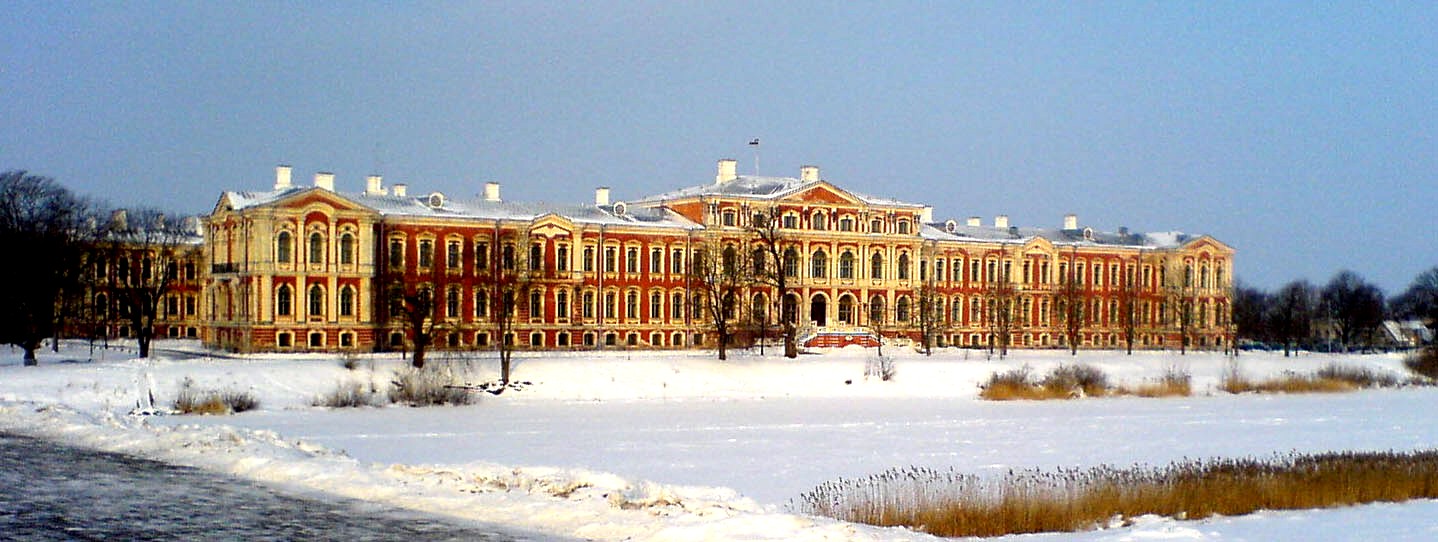|
Invasion Of France (1795)
The invasion of France (also known as the Battle of Quiberon) was a major landing on the Quiberon peninsula by émigré, counter-revolutionary troops in support of the Chouannerie and Vendée Revolt, beginning on 23 June and finally definitively repulsed on 21 July. It aimed to raise the whole of western France in revolt, bring an end to the French Revolution and restore the French monarchy. The invasion failed; it had a major negative impact, dealing a disastrous blow to the royalist cause. Background As a result of the French Revolution, many French royalists fled to Britain, including the Count of Provence and the Count of Artois. The two men divided royalist activities between them, with the Count of Provence handling royalist affairs in southern France, and the Count of Artois handling such efforts in western France. Joseph de Puisaye, a nobleman and military veteran, fled to Britain in 1794, where he entered into negotiations with Count of Artois. Puisaye also negoti ... [...More Info...] [...Related Items...] OR: [Wikipedia] [Google] [Baidu] |
Paul-Émile Boutigny
Paul-Émile Boutigny (; 10 March 1853 in Paris – 27 June 1929 in Paris) was a French academist painter who specialized in military subjects. Life and work His father was a tailor and his mother worked as a seamstress. Following the Franco-Prussian War, he studied at the École des Beaux-Arts under Alexandre CabanelOpen Library ''Nos peintres et sculpteurs, graveurs, dessinateurs : portraits et biographies suivis d'une notice sur les Salons français depuis 1673'', les Sociétés de Beaux-Arts, (1897), p. 71 and developed a unique style of battle painting, drawn from personal experience. He was a regular participant in the after 1880. He was decorated with the |
émigré
An ''émigré'' () is a person who has emigrated, often with a connotation of political or social exile or self-exile. The word is the past participle of the French verb ''émigrer'' meaning "to emigrate". French Huguenots Many French Huguenots fled France following the Revocation of the Edict of Nantes in 1685. The American Revolution Many Loyalists, who made up large portions of colonial United States particularly in the South, emigrated by choice or were forced to leave the United States during and after the American Revolution. Common destinations were other parts of the British Empire, such as Upper Canada, Nova Scotia, Great Britain, Jamaica, and the British West Indies. The new government often awarded the lands of fleeing Loyalists to Patriot soldiers by way of land grants. The French Revolution Although the French Revolution began in 1789 as a bourgeois-led drive for increased political equality for the Third Estate, it soon turned into a violent popular rebell ... [...More Info...] [...Related Items...] OR: [Wikipedia] [Google] [Baidu] |
William Windham
William Windham (4 June 1810) was a British Whig politician. Elected to Parliament in 1784, Windham was attached to the remnants of the Rockinghamite faction of Whigs, whose members included his friends Charles James Fox and Edmund Burke. Windham soon became noted for his oratory in the House of Commons. An early supporter of the French Revolution, by late 1791 he shared Burke's hostility to it and became a leading anti-Jacobin. After war was declared on France in early 1793, he broke with the anti-war, pro-Revolution Foxite Whigs to form a small 'Third Party' which was independent of Pitt's government but supportive of the war effort. Like Burke, Windham supported the war as an ideological crusade against Jacobinism and was an enthusiastic supporter of the French ''émigrés'' and a Bourbon restoration. In July 1794 he finally joined Pitt's government as Secretary at War but did not control war policy. He discovered that Pitt did not share his enthusiasm for the Bo ... [...More Info...] [...Related Items...] OR: [Wikipedia] [Google] [Baidu] |
Government Of The United Kingdom
His Majesty's Government, abbreviated to HM Government or otherwise UK Government, is the central government, central executive authority of the United Kingdom of Great Britain and Northern Ireland.Overview of the UK system of government : Directgov – Government, citizens and rights Archived direct.gov.uk webpage. Retrieved on 29 August 2014. The government is led by the Prime Minister of the United Kingdom, prime minister (Keir Starmer since 5 July 2024) who appoints all the other British Government frontbench, ministers. The country has had a Labour Party (UK), Labour government since 2024 United Kingdom general election, 2024. The ... [...More Info...] [...Related Items...] OR: [Wikipedia] [Google] [Baidu] |
Brittany
Brittany ( ) is a peninsula, historical country and cultural area in the north-west of modern France, covering the western part of what was known as Armorica in Roman Gaul. It became an Kingdom of Brittany, independent kingdom and then a Duchy of Brittany, duchy before being Union of Brittany and France, united with the Kingdom of France in 1532 as a provinces of France, province governed as a separate nation under the crown. Brittany is the traditional homeland of the Breton people and is one of the six Celtic nations, retaining Culture of Brittany, a distinct cultural identity that reflects History of Brittany, its history. Brittany has also been referred to as Little Britain (as opposed to Great Britain, with which it shares an etymology). It is bordered by the English Channel to the north, Normandy to the northeast, eastern Pays de la Loire to the southeast, the Bay of Biscay to the south, and the Celtic Sea and the Atlantic Ocean to the west. Its land area is 34,023 ... [...More Info...] [...Related Items...] OR: [Wikipedia] [Google] [Baidu] |
French Revolutionary Wars
The French Revolutionary Wars () were a series of sweeping military conflicts resulting from the French Revolution that lasted from 1792 until 1802. They pitted French First Republic, France against Kingdom of Great Britain, Great Britain, Habsburg monarchy, Austria, Kingdom of Prussia, Prussia, Russian Empire, Russia, and several other countries. The wars are divided into two periods: the War of the First Coalition (1792–1797) and the War of the Second Coalition (1798–1802). Initially confined to Europe, the fighting gradually assumed a global dimension. After a decade of constant warfare and aggressive diplomacy, France had conquered territories in the Italian peninsula, the Low Countries, and the Rhineland with its very large and powerful military which had been totally mobilized for war against most of Europe with mass conscription of the vast French population. French success in these conflicts ensured military occupation and the spread of revolutionary principles over mu ... [...More Info...] [...Related Items...] OR: [Wikipedia] [Google] [Baidu] |
London
London is the Capital city, capital and List of urban areas in the United Kingdom, largest city of both England and the United Kingdom, with a population of in . London metropolitan area, Its wider metropolitan area is the largest in Western Europe, with a population of 14.9 million. London stands on the River Thames in southeast England, at the head of a tidal estuary down to the North Sea, and has been a major settlement for nearly 2,000 years. Its ancient core and financial centre, the City of London, was founded by the Roman Empire, Romans as Londinium and has retained its medieval boundaries. The City of Westminster, to the west of the City of London, has been the centuries-long host of Government of the United Kingdom, the national government and Parliament of the United Kingdom, parliament. London grew rapidly 19th-century London, in the 19th century, becoming the world's List of largest cities throughout history, largest city at the time. Since the 19th cen ... [...More Info...] [...Related Items...] OR: [Wikipedia] [Google] [Baidu] |
William Pitt The Younger
William Pitt (28 May 1759 – 23 January 1806) was a British statesman who served as the last prime minister of Kingdom of Great Britain, Great Britain from 1783 until the Acts of Union 1800, and then first Prime Minister of the United Kingdom, prime minister of the United Kingdom from January 1801. He left office in March 1801, but served as prime minister again from 1804 until his death in 1806. He was also Chancellor of the Exchequer for all of his time as prime minister. He is known as "Pitt the Younger" to distinguish him from his father, William Pitt the Elder, who had also previously served as prime minister. Pitt's prime ministerial tenure, which came during the reign of King George III, was dominated by major political events in Europe, including the French Revolution and the Napoleonic Wars. Pitt, although often referred to as a Tory (British political party), Tory, or "new Tory", called himself an "independent Whig (British political party), Whig" and was generally oppo ... [...More Info...] [...Related Items...] OR: [Wikipedia] [Google] [Baidu] |
Joseph De Puisaye
Joseph is a common male name, derived from the Hebrew (). "Joseph" is used, along with " Josef", mostly in English, French and partially German languages. This spelling is also found as a variant in the languages of the modern-day Nordic countries. In Portuguese and Spanish, the name is "José". In Arabic, including in the Quran, the name is spelled , . In Kurdish (''Kurdî''), the name is , Persian, the name is , and in Turkish it is . In Pashto the name is spelled ''Esaf'' (ايسپ) and in Malayalam it is spelled ''Ousep'' (ഔസേപ്പ്). In Tamil, it is spelled as ''Yosepu'' (யோசேப்பு). The name has enjoyed significant popularity in its many forms in numerous countries, and ''Joseph'' was one of the two names, along with ''Robert'', to have remained in the top 10 boys' names list in the US from 1925 to 1972. It is especially common in contemporary Israel, as either "Yossi" or "Yossef", and in Italy, where the name "Giuseppe" was the most common m ... [...More Info...] [...Related Items...] OR: [Wikipedia] [Google] [Baidu] |
Charles X Of France
Charles X (Charles Philippe; 9 October 1757 – 6 November 1836) was King of France from 16 September 1824 until 2 August 1830. An uncle of the uncrowned Louis XVII and younger brother of reigning kings Louis XVI and Louis XVIII, he supported the latter in exile. After the Bourbon Restoration in France, Bourbon Restoration in 1814, Charles (as heir-presumptive) became the leader of the ultra-royalists, a radical monarchist faction within the French court that affirmed absolute monarchy by Divine Right of Kings, divine right and opposed the constitutional monarchy concessions towards Classical liberalism, liberals and the guarantees of civil liberties granted by the Charter of 1814. Charles gained influence within the French court after the assassination of his son Charles Ferdinand, Duke of Berry, in 1820 and succeeded his brother Louis XVIII in 1824. Charles's reign of almost six years proved to be deeply unpopular amongst the liberals in France from the moment of Coronation of ... [...More Info...] [...Related Items...] OR: [Wikipedia] [Google] [Baidu] |
Louis XVIII
Louis XVIII (Louis Stanislas Xavier; 17 November 1755 – 16 September 1824), known as the Desired (), was King of France from 1814 to 1824, except for a brief interruption during the Hundred Days in 1815. Before his reign, he spent 23 years in exile from France beginning in 1791, during the French Revolution and the First French Empire. Until his accession to the throne of France, he held the title of Count of Provence as brother of King Louis XVI, the last king of the ''Ancien Régime''. On 21 September 1792, the National Convention abolished the monarchy and deposed Louis XVI, who was later Execution of Louis XVI, executed by guillotine. When his young nephew Louis XVII died in prison in June 1795, the Count of Provence claimed the throne as Louis XVIII. Following the French Revolution and during the Napoleonic era, Louis XVIII lived in exile in Kingdom of Prussia, Prussia, Kingdom of Great Britain, Great Britain, and Russian Empire, Russia. When the War of the Sixth ... [...More Info...] [...Related Items...] OR: [Wikipedia] [Google] [Baidu] |
Kingdom Of Great Britain
Great Britain, also known as the Kingdom of Great Britain, was a sovereign state in Western Europe from 1707 to the end of 1800. The state was created by the 1706 Treaty of Union and ratified by the Acts of Union 1707, which united the Kingdom of England (including Wales) and the Kingdom of Scotland to form a single kingdom encompassing the whole island of Great Britain and its outlying islands, with the exception of the Isle of Man and the Channel Islands. The unitary state was governed by a single Parliament of Great Britain, parliament at the Palace of Westminster, but distinct legal systems—English law and Scots law—remained in use, as did distinct educational systems and religious institutions, namely the Church of England and the Church of Scotland remaining as the national churches of England and Scotland respectively. The formerly separate kingdoms had been in personal union since the Union of the Crowns in 1603 when James VI of Scotland became King of England an ... [...More Info...] [...Related Items...] OR: [Wikipedia] [Google] [Baidu] |







